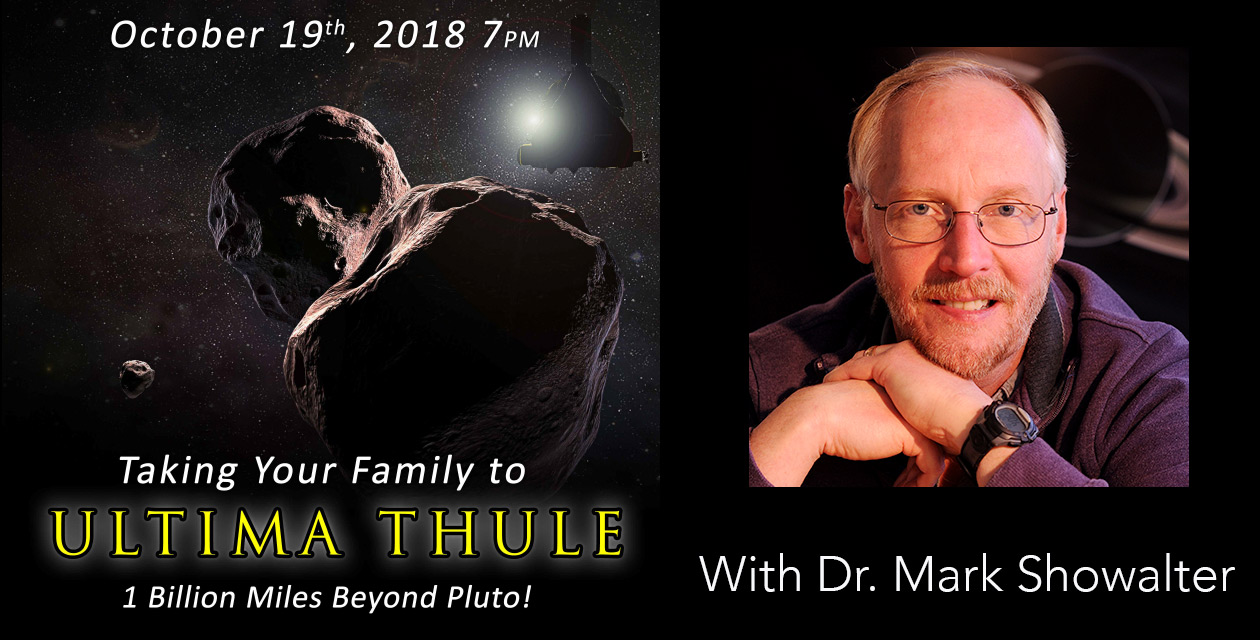Taking Your Family to Ultima Thule

Tags: New Horizons, Solar System, Planetary Exploration
Time: Friday, Oct 19, 2018 -
Location: Victorville, CA
What will humanity find one billion miles beyond Pluto?
Dr. Mark Showalter, a world-renowned planetary scientist at the SETI Institute and discoverer of two of Pluto's moons, is a member of NASA’s New Horizons Spacecraft's science team.
Dr. Showalter and his team will be taking the people of Earth 1 billion miles beyond Pluto on New Year's Eve/Day when the New Horizons spacecraft reaches a never-before-explored-region of our Solar System. This body has been nicknamed "Ultima Thule", which means "beyond the known world," a designation that hints at the scientific value of encountering a world that is the farthest of any humanity has ever visited, and finally observing the nature of this world. It is so far from Earth that it is unresolvable even with telescopes from this distance. Ultima Thule is smaller than Pluto's moon Charon, but larger than comet P67 that the Europeans landed on during the Rosetta mission in 2015; hence, Ultima Thule is a missing body in our understanding of how our Solar System formed. It represents an ancient and likely pristine class of celestial bodies whose natures are unknown, and will tell us about conditions during the beginning of the formation of our star's planetary system.
The time is fast approaching - New Year’s Day of 2019 - for this unprecedented mission. New Horizons will take humanity to Ultima Thule, the first time we will have ever visited an object of its kind in the Kuiper Belt. Related to the comets, but not thought to have formed in the same region as them, little Ultima Thule will be, ironically, the largest, most distant, and most primitive body ever encountered by a spacecraft!
This event is free and open to the public and students and their families of our region. Arrive early! Seating is limited.
For more information, visit https://calendar.vvc.edu/EventList.aspx?fromdate=10/1/2018&todate=10/31/2018&display=Month&type=public&eventidn=1636&view=EventDetails&information_id=4412
